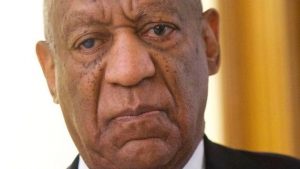
For several years, I was conflicted about Bill Cosby.
It started, of course, when women by the dozens began coming forward with stories about how he had drugged, sexually assaulted, and raped them. While the #MeToo movement has taken off since the claims against Harvey Weinstein and other powerful men, Cosby’s ugliness pre-dates much of that by several years. Now, in the first trial of the #MeToo era, Cosby has been convicted by a jury in Pennsylvania of three counts of aggravated indecent assault against Andrea Constand, at the time a Temple University employee he was mentoring. She was the only one who was able to file criminal charges against Cosby before the statute of limitations ran out.
The judge hasn’t set a date for sentencing, but considering that Cosby is likely to appeal, and that process works slowly, I’d bet that the 80-year-old will die before he sits behind bars in a jail cell, let alone spends a decade or more there as punishment for his crimes. If he does, he’ll also have to deal with a torrent of civil lawsuits by many of his other accusers who claim he not only assaulted them, but then defamed them when he and/or his team painted them publicly as liars.
Obviously, I consider Cosby’s actions towards all of those women (and some who have probably never stepped forward) as odious. But what should be said about the man’s work? That was the source of my conflict.
I could easily make a case that Bill Cosby was the most popular standup comedian and comic performer of all time. I enjoyed the man’s work from his early albums in the 1960s (try to name a funnier piece of material than his conversation between Noah and God about building The Ark), all the way through to his live performances in this century, which my wife and I attended several times before we knew anything about his off-stage criminal actions. I still remember sitting down each week with my father to watch the 1969-71 NBC series, “The Bill Cosby Show,” in which he played high school gym teacher Chet Kincaid. While never a fan of “I Spy,” I recognize his ground-breaking status as the first African-American to be equally billed with his co-star on a network drama. And, of course, there was “The Cosby Show,” the sitcom that saved sitcoms and sparked NBC’s long run of Must-See-TV Thursday nights.
My daughter wasn’t alive while the series about the Huxtables first aired, but we showed it to her later, and it became one of her favorites. I introduced her to Cosby’s standup material, and that she can still quote whole routines from his 1983 “Himself” concert movie (particularly the dentist bit). I feel no guilt in having shared Cosby’s comedic genius with her. I also recognize that not everything Cosby did was comedy gold. Here’s one paragraph from a piece I wrote in 2014:
My wife and I saw Cosby at The Fox Theater several months ago, and he wasn’t nearly as funny as when we’d seen him at that venue a few years back. Not only was the material not up to par, his performance was lackluster. Additionally, his recent TV appearances with Jimmy Fallon and Stephen Colbert were more odd than humorous. The hosts treated Cosby with reverence, but he didn’t seem to want to play along with whatever line of questioning they offered. Instead, he went off on tangents that made no sense. It was sad to see because he had a history of being a money-in-the-bank guest for so many shows.
Still, there’s that question of how to view Cosby’s remarkable comedy career in hindsight. I’ve come to the conclusion that, while I admired much of what he did for a very long time, I just can’t watch or listen to any of it ever again. Merely hearing his voice would be a reminder that this was a powerful man who took advantage of so many women — the quaaludes, the violations of their bodies, the denials, the victim-shaming, all of it.
You don’t get away with that many incidents and lies for so long without an enabler on the home front, so let’s not let his wife, Camille Cosby, off the hook. She covered up his crimes, or at least did nothing when she was certainly aware of them, and stood by him as the numbers of women charging him with horrific actions kept growing. There were others (e.g. Phylicia Rashad, Whoopi Goldberg, Damon Wayans) who supported him publicly, to their ever-lasting shame, and let’s not forget all the people who continued to pay for tickets to see Cosby in concert after it was clear that his victims — who had no motive to lie — hadn’t manufactured their claims against him. Where is their morality? They’re enablers, too.
I wish each of us had paid attention to the reporting of journalist Mark Ebner, who in 2007 (!) was the first to report on Cosby’s accusers. I had Mark on my radio show in November, 2014, to discuss his original reporting (listen to that conversation here), and then again a year later to discuss the Andrea Constand case in particular (listen to that conversation here).
Most of all, congratulations to Constand and Cosby’s other accusers, even those who couldn’t testify against him, for finally getting not only their day in court, but also the justice they deserve.
